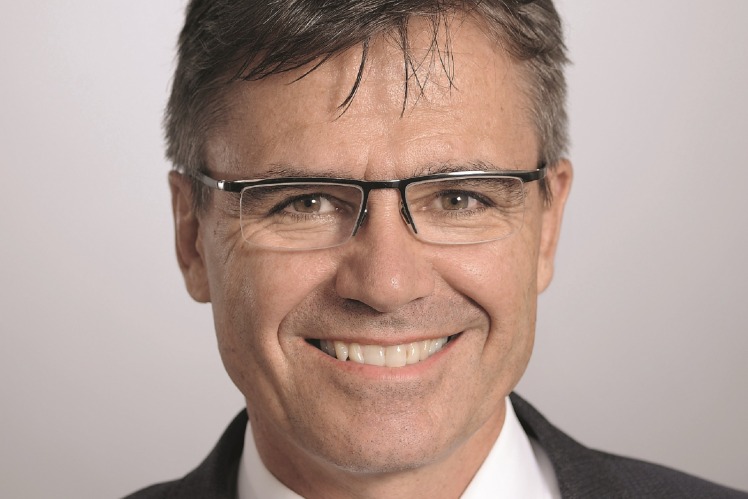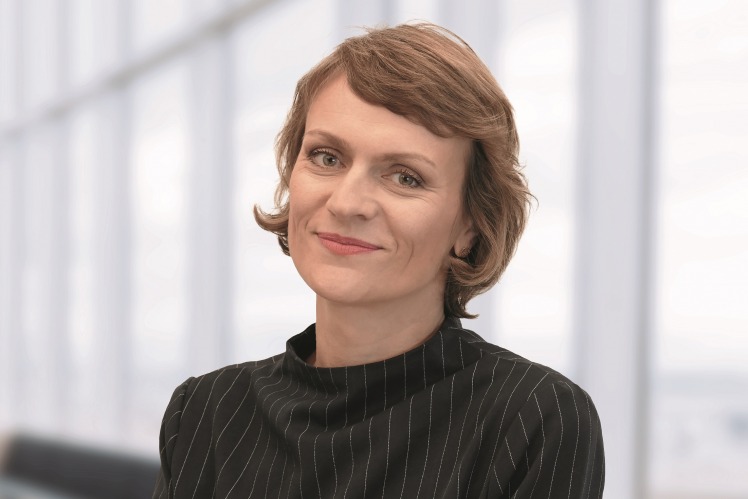Coronavirus measures
The coronavirus pandemic hit the aviation industry with full force. RUAG International was focused on two objectives from the outset: protect employees and maintain business operations....
On 30 January 2020, the World Health Organisation (WHO) declared a “Public Health Emergency of International Concern” due to the coronavirus. On that same day, RUAG International also published its first internal communication on the coronavirus. As its first measure, RUAG International banned travel to China. Another measure introduced during the year was to encourage staff to wash their hands more often and to stop shaking hands. Throughout each site, posters with hygiene recommendations were displayed at the entrances, in the toilet rooms and at central locations.
China and Wuhan province remained the central sites of the coronavirus, although it was spreading rapidly. In Europe, Italy was hit the hardest. Initially, cities in the north of the country were sealed off. On 25 February 2020, Switzerland and Austria each reported their first case. RUAG International took further preventive measures for its employees: “Travel to Italy and Asia requires an exemption permit from the relevant member of the Executive Board,” states a memo dated 26 February.
The first meeting of the task force followed a day later on 27 February. Under the leadership of Executive Vice President Felix Ammann, the task force’s primary goals were to: protect employees and ensure operations. Even at this early stage, however, it became increasingly challenging to keep business running smoothly under the ever-changing conditions. The first economic consequences of the coronavirus crisis could already be felt. Deliveries from Italy were delayed, many meetings were postponed, cancelled or held online.
Air traffic came to a complete standstill
The number of coronavirus infections was increasing rapidly and exponentially. The situation at RUAG International varied greatly depending on the country and location. Each site has a protection concept that is communicated and implemented locally.
On 13 March, the USA also imposed an entry ban on all private travellers from European countries. On 15 March, Germany closed its borders to its neighbouring countries. Spain imposed a curfew on its citizens on the same day. Travel bans in many countries had drastic implications for air travel. It virtually come to a complete standstill. At the same time, it became increasingly difficult to nprovide adequate support to business segments abroad with skills and manpower from Switzerland. Large global or local projects – such as the introduction of SAP systems – were delayed.
RUAG International supports working from home and split offices wherever it is possible to do so efficiently. Offices and production areas have been reorganised to improve protection. Disinfectants are available everywhere and premises are cleaned even more frequently. In addition, break times and shift changes have been optimised in order to avoid contact. In principle, on-site visits are kept to a minimum, factory tours are no longer carried out, and business trips have been put on hold.
RUAG International’s most important measures
- 26.02. Travel to China and Italy is banned
- 17.03. First coronavirus case is reported at RUAG Ammotec in Thun
- 06.04. Protective masks are made available for employees at risk
- 16.04. A cash protection process is introduced
- 01.05. Short-time work is introduced at the Aerostructures plant in Emmen
- 01.06. Short-time work is introduced at the Aerostructures plant in Oberpfaffenhofen
- 01.06. Business trips are possible once again
- 17.06. The situation eases: the Corona Task Force is disbanding
- 07.09. The second wave rolls in: the Corona Task Force is reactivated
- 19.10. Masks must be worn on all sites
- 02.11. Germany and France impose partial lockdowns
The first case of coronavirus at RUAG International
On 16 March, the Federal Council of Switzerland declared an extraordinary situation. All shops, restaurants, bars and entertainment and recreation businesses were to be closed. RUAG International recorded its first case of coronavirus on 17 March. The prepared reporting process worked perfectly; fortunately, the employee was soon recovering at home after being hospitalised.
Economic impact
The blanket travel ban, as well as the ban on major events were followed by the cancellation of major trade fairs: the Space Symposium scheduled for early May was postponed, the International Aerospace Exhibition (Internationale Luftfahrtausstellung, ILA) in Berlin scheduled for mid-May was cancelled. The coronavirus had an increasingly negative impact on supply chains and production. Orders were cancelled. RUAG International was forced to reduce costs and expenses – a cash protection process was introduced throughout the Group and the Board of Directors waived 15 % of its fee. However, wage increases for employees were not suspended. They are the ones who perform the most during the crisis.
Significant decrease in orders
International tourism virtually came to a standstill. RUAG International, an important supplier to Airbus, has also felt the effects of this. Orders decreased by around 30 per cent. Short-time work was introduced at many of RUAG International’s plants – mostly at RUAG Aerostructures’ three plants in Emmen (CH), Oberpfaffenhofen (DE) and Eger (HU). As a result of the coronavirus crisis, job cuts were also announced in the support areas: as many as 150 jobs will be cut worldwide by 2021.
The second wave rolls in
After a rather quiet summer, infection rates rapidly rose again in autumn. The Swiss Federal Council enacted a mask requirement in public spaces effective as of 19 October. On the same day, RUAG International also introduced compulsory masks for its employees. In addition, working from home was once again recommended. On 29 October, measures were tightened further by the Federal Council. Germany and France adopted even stricter measures: a second, more moderate lockdown was imposed in both countries in November. Many restaurants and leisure facilities were forced to close. Regulations were relaxed somewhat in many countries for the Christmas holidays. However, travel restrictions and quarantine requirements remained in place for many countries.
What is the biggest difference to other crises?

What is the biggest difference to other crises?
This is not comparable to any other crisis. We had to set up the most important measures quickly and in a coordinated way and harmonise them across the entire group and all countries. All segments pulled together right from the start. This meant that we were well equipped for the first wave, and always had the necessary number of masks and disinfectants, despite bottlenecks. This was a tremendous team success and we worked very well across all countries. This despite the difficult situation and an unprecedented pandemic. We continue to be well positioned.
Felix Ammann
Head of Corona Taskforce and
Executive Vice President RUAG MRO International
What have been the biggest challenges?

What have been the biggest challenges?
The epidemiological situation and infection rates are changing rapidly and the development was and is unpredictable. The legal requirements in individual countries, regions and sometimes individual cities are changing even more quickly. This complexity is challenging. We must constantly keep an eye on things, communicate frequently, make quick decisions.
Nicole Vogler
Global Risk & HSSE Manager